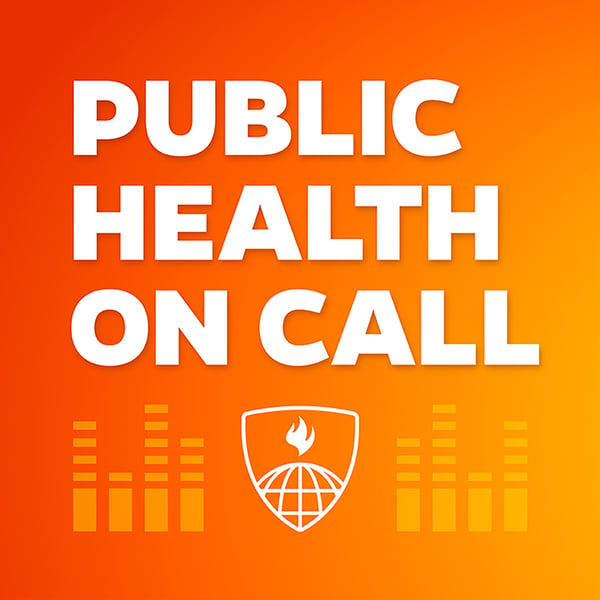862 - The Misinformation Around Seed Oils
Public Health On Call
The Johns Hopkins Bloomberg School of Public Health
4.8 • 620 Ratings
🗓️ 5 March 2025
⏱️ 16 minutes
🧾️ Download transcript
Summary
About this episode:
Research shows that seed oils, like sunflower and sesame, can contribute to better health. So why are wellness influencers talking about a group called “the hateful eight,” which include non-seed oils like soybean and canola? In this episode: a breakdown of what seed oils are (and aren’t), misconceptions around inflammation and omega 6’s, and how processed foods play into the conversation. Note: This episode mentions Robert F. Kennedy, Jr. and was recorded prior to his confirmation as Secretary of HHS.
Guests:
Christopher Gardner is the director of nutrition studies at the Stanford Prevention Research Center.
Host:
Stephanie Desmon, MA, is a former journalist, author, and the director of public relations and communications for the Johns Hopkins Center for Communication Programs, the largest center at the Johns Hopkins Bloomberg School of Public Health.
Show links and related content:
-
Are Seed Oils Actually Bad For You?—The New York Times
Contact us:
Have a question about something you heard? Looking for a transcript? Want to suggest a topic or guest? Contact us via email or visit our website.
Follow us:
Transcript
Click on a timestamp to play from that location
| 0:00.0 | Welcome to Public Health On Call, a podcast from the Johns Hopkins Bloomberg School of Public Health, |
| 0:05.9 | where we bring evidence, experience, and perspective to make sense of today's leading health challenges. |
| 0:16.3 | If you have questions or ideas for us, please send an email to public health question at jh.h. |
| 0:22.6 | That's public health question at jh.g.u.edu for future podcast episodes. |
| 0:29.6 | Hey listeners, it's Lindsay Smith Rogers. Today, the truth about seed oils. |
| 0:36.6 | Some influencers have been warning that seed oils, especially a group now dubbed the |
| 0:42.2 | hateful eight, are making us sick and should be avoided. |
| 0:46.4 | But Stanford's Christopher Gardner tells Stephanie Desmond that decades of research actually |
| 0:50.9 | shows that seed oils are part of a healthy diet, and proposed substitutes like |
| 0:55.5 | butter, lard, and beef tallow are actually far more dangerous. Let's listen. Christopher Gardner, |
| 1:01.8 | thanks so much for joining me. Stephanie, pleasure to be here. I'd like to talk today about seed oils. |
| 1:08.1 | And before we can even start, I need you to please tell me, what are |
| 1:11.7 | seed oils? So they come from seeds. So all seed plants have oils in them as part of their |
| 1:17.7 | structures. So this would be sunflower, safflower, canola, rapeseed. You can think of all the things, |
| 1:24.9 | sesame seed, flax seed. There's just a lot of oils out there. |
| 1:28.9 | And most importantly, we cook with them. |
| 1:31.3 | And that's one of the issues that's come up is not just eating seeds that have oils in them. |
| 1:35.4 | Nuts and seeds both have oils in them. |
| 1:37.7 | But some of these oils we cook with. |
| 1:40.0 | I think that's going to be a particular interest today. |
| 1:43.1 | So groups out there have labeled these the hateful eight. |
| 1:48.1 | So I'm curious where these hateful eight oils label came from and why it's important that it's out there. |
... |
Please login to see the full transcript.
Disclaimer: The podcast and artwork embedded on this page are from The Johns Hopkins Bloomberg School of Public Health, and are the property of its owner and not affiliated with or endorsed by Tapesearch.
Generated transcripts are the property of The Johns Hopkins Bloomberg School of Public Health and are distributed freely under the Fair Use doctrine. Transcripts generated by Tapesearch are not guaranteed to be accurate.
Copyright © Tapesearch 2025.

